Explore the upcoming 2024 Canadian tax changes affecting investors, business owners, and high-net-worth individuals. From capital gains adjustments to new incentives, stay informed with our comprehensive checklist.
![]()
![]()
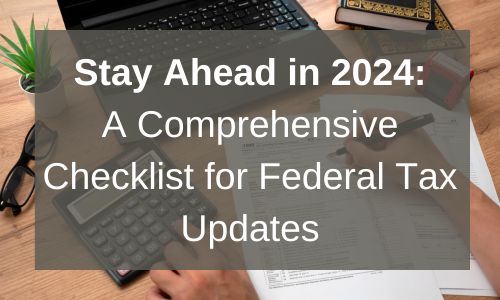

Explore the upcoming 2024 Canadian tax changes affecting investors, business owners, and high-net-worth individuals. From capital gains adjustments to new incentives, stay informed with our comprehensive checklist.
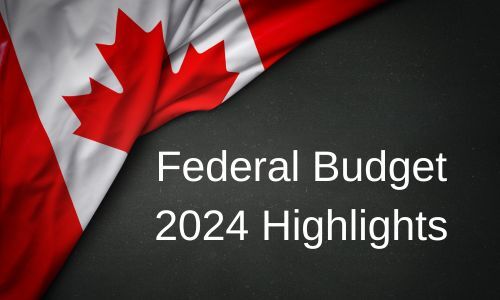

On April 16, 2024, Canada's Deputy Prime Minister and Finance Minister, Chrystia Freeland, presented the federal budget. While there are no changes to federal personal or corporate tax rates, the budget introduces: • An increase in the portion of capital gains subject to tax, rising from 50% to 66.67%, starting June 25, 2024. However, individual gains up to $250,000 annually will retain the 50% rate. • The lifetime exemption limit for capital gains has been raised to $1.25 million. Additionally, a new one-third inclusion rate is set for up to $2 million in capital gains for entrepreneurs. • The budget confirms the alternative minimum tax changes planned for January 1, 2024 but lessens their impact on charitable contributions. • This year's budget emphasizes making housing more affordable. It provides incentives for building rental properties specifically designed for long-term tenants. • Introduces new support measures to aid people buying their first homes. • Costs for specific patents and tech equipment and software can now be written off immediately. • Canada carbon rebate for small business
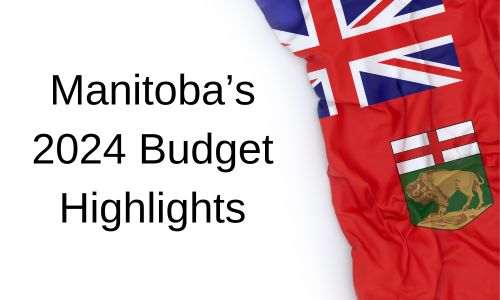

Manitoba's 2024 budget introduces vital tax changes and credits, including a new Homeowners Affordability Tax Credit and enhanced Fertility Treatment Tax Credit, aiming to support individuals and businesses alike
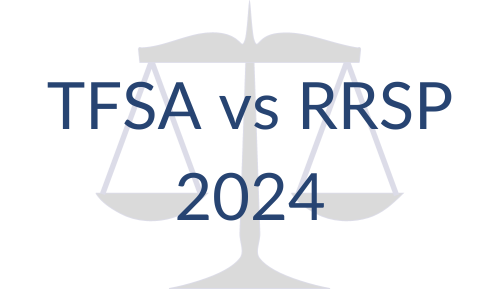

When looking to save money in a tax-efficient manner, Tax-Free Savings Accounts (TFSA) and Registered Retirement Savings Plans (RRSP) can offer significant tax benefits. The main difference between the two is that TFSAs are ideal for short-term goals, such as saving for a down payment on a house or a vacation, as its growth is entirely tax-free, while RRSPs are more suitable for long-term goals such as retirement. When comparing deposit differences, TFSAs have a limit of $7,000 for the current year, while RRSPs have a limit of 18% of your pre-tax income from the previous year, with a maximum limit of $31,560. In terms of withdrawals, TFSAs have no conversion requirements and withdrawals are tax-free, while RRSPs must be converted to a Registered Retirement Income Fund (RRIF) at age 71 and withdrawals are taxed as income.
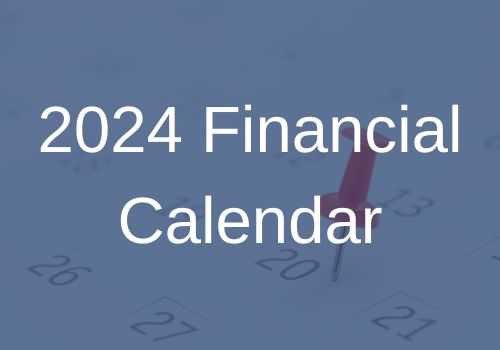

Stay ahead in 2024 with our comprehensive financial calendar! From tax filing to benefit distributions, we guide you through key dates like the $7,000 TFSA contribution and $8,000 First Home Savings Account. Bookmark now for a financially savvy year!
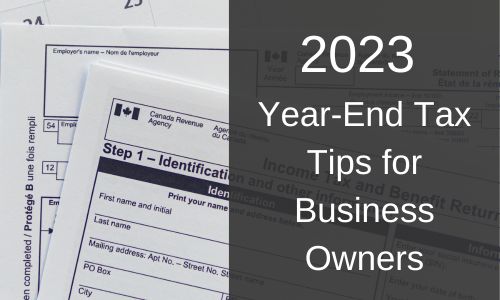

Maximize your tax benefits as a business owner in 2023! Learn key strategies for salary vs. dividends, passive investments, and more.
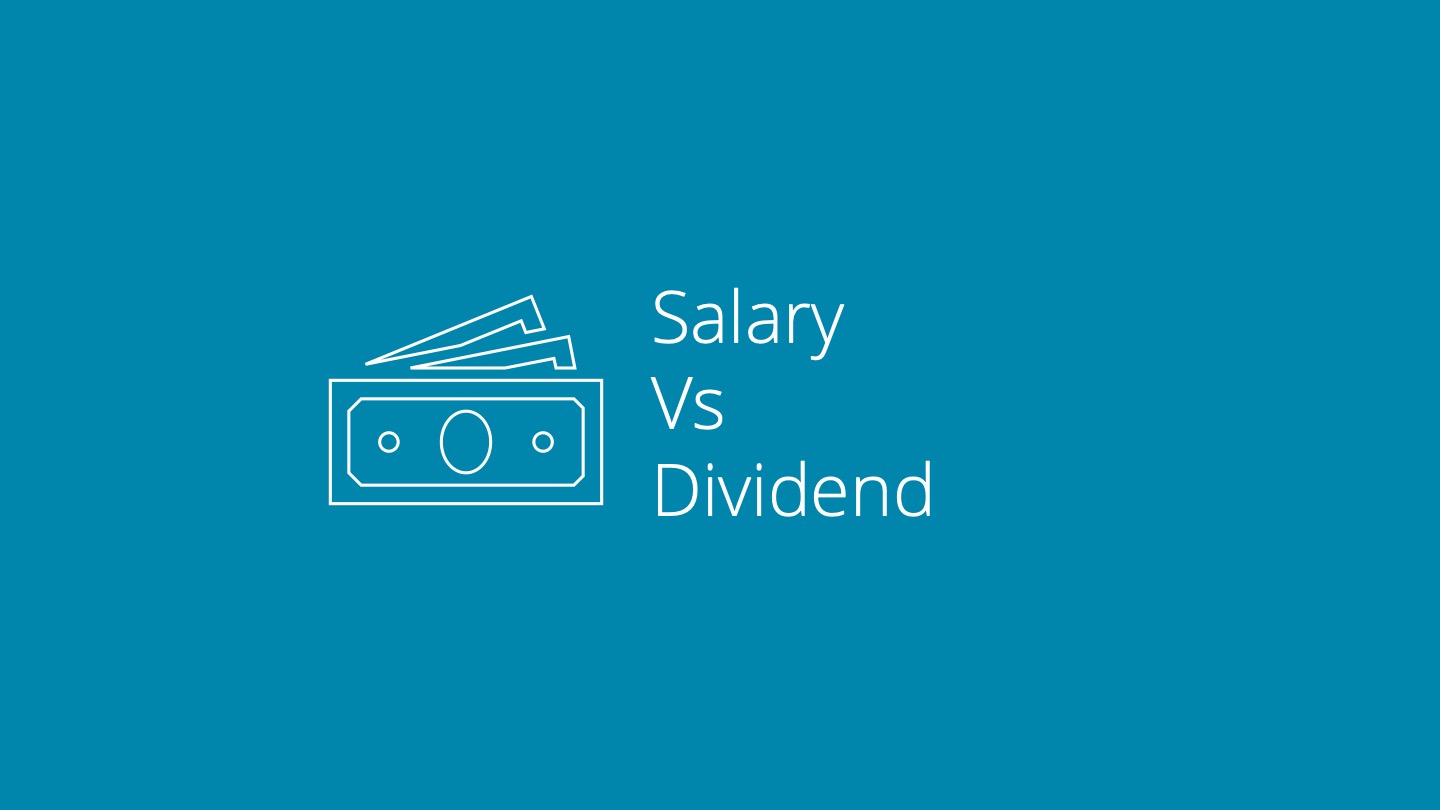

As a business owner, you have the ability to pay yourself a salary or dividend or a combination of both. In this article and infographic, we will examine the difference between salary and dividends and review the advantages and disadvantages of each.


Many business owners have built up earnings in their corporation and are looking for tax efficient ways to pull the earnings out to achieve their personal and business financial goals. We outline the factors to consider when investing as a corporation.
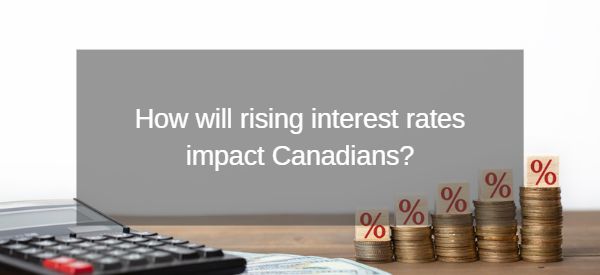

You've likely heard much about interest rates, especially house prices and mortgages. Rising interest rates will impact everyone, whether they are borrowers or savers. Read our article on how to prepare.
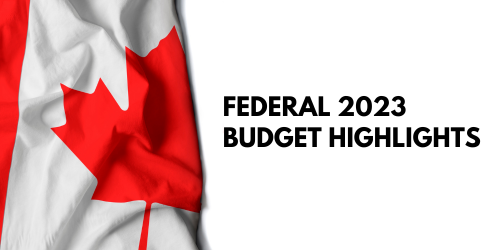

On March 28, 2023, the Federal Government released their 2032 budget. This article highlights the following financial measures: • New transfer options associated with Bill C-208 for intergenerational transfer. • New rules for employee ownership trusts. • Changes to how the Alternative Minimum Tax is calculated. • Improvements to Registered Education Savings Plans. • Expanding access to Registered Disability Savings Plans. • Grocery rebate. • Deduction for tradespeople tool expenses. • Automatic tax filing. • New Canadian Dental Care Plan.